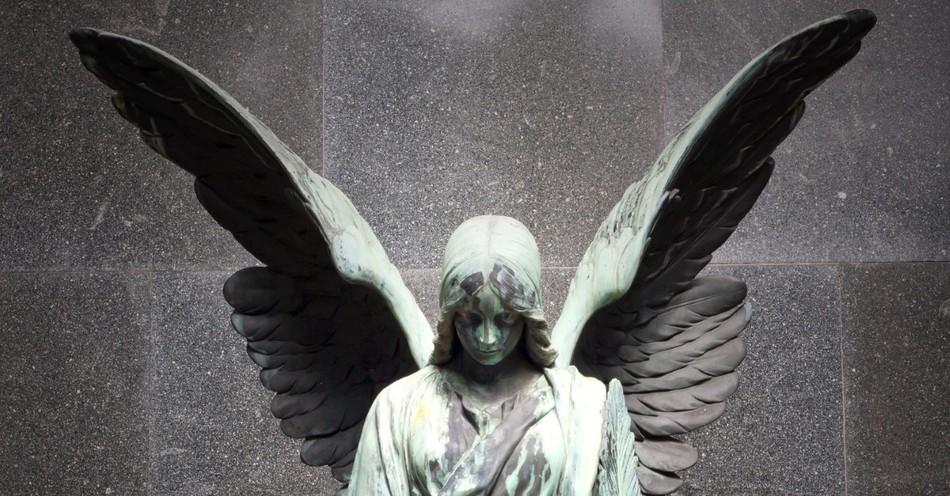Is there an archangel named Raguel in the Bible? Most of us are familiar with angels such as Michael and Gabriel, who are mentioned in the Scripture. Even with those outside of Scripture, such as Ariel (who also goes by other names in literature). But the name Raguel may leave us scratching our heads.
In today’s article, we’ll talk about Raguel, where he shows up in extra-biblical literature, whether he shows up in the Bible, and what we can learn from him. Is there an archangel named Raguel in the Bible? Let’s find out together.
Is There An Archangel Named Raguel in the Bible?
Right off the bat, let’s answer the question from which we started: Do we see the name Raguel anywhere in the Bible.
First, we have to define what we mean by the Bible. Because Orthodox and Catholic traditions use a different Bible than the one we do. So if we go based on the Protestant Bible, then no, we don’t see Raguel named in any of the 66 books.
In fact, we only really see two angels who get named in those books: Michael and Gabriel.
Both Michael and Gabriel appear to be archangels, the highest rank of angels in heaven. They show up and speak to people in the Bible, such as Mary and Daniel.
So now that we don’t mention Raguel in the Bible, where else can we find him in literature?
For that, we must turn to something known as the Apocrypha.
The Apocrypha is a collection of books the Protestant church has deemed historical value but not inspired by the Holy Spirit.
Let’s see what the Apocrypha has to say about this angel. As always, we must take in the knowledge with a grain of salt when we look at extra-biblical sources. But considering most church traditions, at the very least, value the Apocrypha, we can proceed with minimal caution.
What Does the Apocrypha Say about Raguel?
To learn about this archangel, we have to turn to something known as the Book of Enoch. In this apocalyptic book, we meet seven archangels.
Each seems to have a different role—and often takes charge of different things. Some take charge of certain groups of angels. Others help steer humans toward repentance. Others judge fallen angels.
So, according to the Book of Enoch, what does Raguel do?
Raguel seems to do several things. First, he inflicts punishment on “the world,” according to Enoch 20.
He also does so to something called the “luminaries,” spiritual beings. We can imagine that these must be fallen angels.
He appears to dole out these punishments to humans and demons when they disobey God or try to act outside of his will.
Some Catholic traditions also believe Raguel to be the patron of apostolic ministry or “sacrament of holy orders.” We should note, however, that many Catholics do not personally consider Raguel to be a patron.
He’s often known as the archangel of justice and fairness. He also sometimes goes by the name of Sealtiel.
Apart from this, we know very little about Raguel. Certain high church traditions don’t consider the Apocrypha to be inspired either, so most people hold any information about Archangel Raguel with a grain of salt.
With so much talk about punishment and fairness, it may not seem like Raguel is a pleasant fellow. But we may be steered by our modern culture to think this way.
Is Raguel Too Mean to Serve God?
It can initially seem mean when we hear about Raguel punishing humans and demons. We love the idea of archangels challenging demons, but what about when angels step into human affairs?
I think about the plague of the firstborn children in Egypt in Exodus when Pharaoh refused to let the Israelites go. Perhaps Raguel helped to facilitate that.
When we think that Raguel is a “big meanie,” we genuinely misunderstand the nature of God and God’s ordering of angels.
God is so holy that sin will burn someone alive in his presence. Often, a refining process has to take place to extinguish that sin. We, as Christians, know this process as sanctification. The more we become like Christ, the more we feel the effects of sin.
Although Raguel’s role wouldn’t be something I would prefer as an angel—I think I’d rather deliver messages to prophets and mothers—we can see the importance of angels putting demons in their place.
If a demon tries to overstep, it can wreak havoc. It would make sense that God would appoint someone to lead angelic armies against such activities.
However, we cannot definitively say whether Raguel exists. We can admire the deep Jewish tradition steeped in the Apocrypha while acknowledging that we may never know such mysteries on this side of heaven.
In either case, angels do protect us. The Bible talks about demons and angels wrestling and fighting one another. We can thank God for placing them in our lives regarding spiritual battles. And perhaps if Raguel does exist, we can rest in the fact that God will not let any power of hell overstep into his territory.
What Can We Learn from Raguel?
Whether or not Raguel exists, his existence in literature can give us a peek into the organizational process of heaven and what angels do for us. We’ll uncover three takeaways from this archangel.
First, God values justice and fairness.
We can often cringe when we read Old Testament passages. It often seems so very harsh. But when we do this, we often forget about the crippling power sin has over us. It destroys us from the inside out. If we value God’s love, we must also value his justice. For everything done in darkness will one day come to light.
Second, God limits Satan’s (and demons’) powers and domain.
Yes, Satan runs rampant in our world today. It grows darker and darker by the day. But rest assured, they cannot act outside of God’s plan. And if they do, God has a way of handling it. We see in the Book of Job that even Satan has to ask permission to inflict pain and suffering. He even asks Peter to sift wheat like wheat in the New Testament. Jesus tells him no to the second request.
Satan cannot overrule God’s sovereignty. We already know who will win the battle over this world. It’s only a matter of time until the war ends.
Finally, people also cannot overstep God’s plans.
In many parts of the world, people actively try to stop the spread of the Gospel. We’ve seen martyrdom wrack Christian and church history. When we encounter very evil people, we often fear what they can do to us.
But just like the demons, evil people cannot derail God’s will. The Bible often talks about evil people meeting justice and meeting just desserts at the end of time. Although we can pray that all people have miraculous encounters with God, such as what Paul experienced on the Road to Damascus, we know that not everyone will accept Jesus.
We can leave justice and fairness in his hands and continue to share the Gospel boldly.
Photo Credit: ©GettyImages/udra
Hope Bolinger is an acquisitions editor at End Game Press, book editor for hire, and the author of almost 30 books. More than 1500 of her works have been featured in various publications. Check out her books at hopebolinger.com for clean books in most genres, great for adults and kids. Check out her editing profile at Reedsy.com to find out about hiring her for your next book project.
This article is part of our People of Christianity catalog that features the stories, meaning, and significance of well-known people from the Bible and history. Here are some of the most popular articles for knowing important figures in Christianity:
How Did the Apostle Paul Die?
Who are the Nicolaitans in Revelation?
Who Was Deborah in the Bible?
Who Was Moses in the Bible?
King Solomon's Story in the Bible
Who Was Lot's Wife in the Bible?
Who Was Jezebel in the Bible?
Who Was the Prodigal Son?



.jpg)